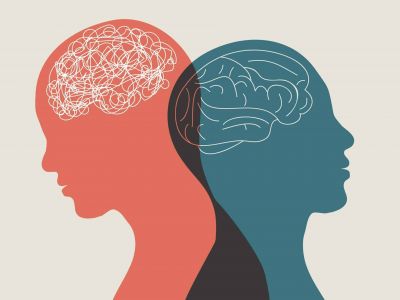Do I Need Rehab?
Wondering “Do I need rehab?” is a common concern for someone regularly partaking in drugs, alcohol (or both). Occasional use can slip into dependency without you noticing.
Many hesitate, unsure if their struggle with substance abuse disorder (SUD) warrants professional help. However, if you’re questioning your relationship with drugs or alcohol, this is a significant first step toward recognizing a major problem.
Recognizing and understanding the signs of addiction is crucial, and acknowledging them is courageous. If you feel you might need rehab, trust that gut feeling. It could be the most important decision of your life.
How to Know if You Need Rehab
Addiction isn’t always about the quantity or frequency of use; it’s about the impact on your life.
For instance, If you’re pondering how to know if you need rehab, consider your physical and emotional state. Are you physically dependent? Have your emotional well-being and mental health deteriorated?
Are you abusing both drugs and alcohol, otherwise known as co-occurring disorder or dual-diagnosis?
Answering yes to these questions signals that your recreational use has become more serious, requiring professional attention.
The difference between casual use and addiction can often become blurred. Still, if you’re seeing negative impacts on your personal and professional responsibilities, this is a telltale sign that your usage is no longer casual.

Warning Signs You Need Rehab
Recognizing the need for rehabilitation starts with that nagging feeling in your gut. When you consistently question whether you have a significant issue with substance use, trust your intuition. It’s there for a reason.
Therefore, determining if you need rehab isn’t just about recognizing physical signs; it’s about acknowledging the impact of alcohol or drug use on your life as a whole.
How do you know if you need rehab? Here are some typical signs:
- Persistent Cravings: The overwhelming desire to use substances and get your next fix dominates your thoughts, interfering with daily activities such as school and work.
- Tolerance Build-Up: You may notice that you must take more substance to achieve the same effects, which can rapidly escalate.
- Withdrawal Symptoms: When not using, you might experience unpleasant physical reactions like headaches, shaking, sweating, nausea, and anxiety.
- Sleep Pattern Changes: Unusual patterns, such as insomnia or oversleeping, could be linked to substance use.
- Neglecting Responsibilities: If you’re struggling to fulfill your roles at work, school, or in family life, it indicates a problem.
- Legal Issues: Encounters with the legal system due to substance abuse, such as arrests for violence, possession, or theft.
- Behavioral Changes: Extreme mood swings such as becoming withdrawn, anxious, or violent.
- Making Bad Decisions: Taking risks you wouldn’t usually take, such as drinking and driving, stealing, or having unsafe sex.
- Deteriorating Relationships: Family and friends avoid you or lecture you. Relationship problems due to substance abuse.
- Sneaky Behaviour: Hiding your drug or alcohol use or lying about it to family and friends.
- Lack of Interest Activities Once Enjoyed: You’ve lost interest in hobbies and other activities you once enjoyed due to not being sober or having intense cravings and seeking a fix.
- Careless Appearance: Sloppy dressing, poor hygiene, and a lackadaisical attitude about your appearance.
If you’ve noticed any or all of these symptoms, and you’re asking yourself, “Do I need rehab?” The answer is likely a resounding “yes.”

It’s time to reclaim your life
Contact our team to find out how we can help you.
Start your recovery journey today
Do I Need Rehab or Can I Quit On My Own?
It’s not uncommon for those who need rehab to want to give it a go on their own before actually checking into rehab. Many people with SUD attempt rehab on their own due to privacy concerns, stigma, lack of access to professional help, or a desire for self-reliance in overcoming addiction.
However, a successful rehab program starts with a detox program. According to the National Institute on Drug Abuse, combining addiction treatment programs with behavioral therapy ensures the best chance of success for most patients.
Attempting to detox from drugs and alcohol without professional help is dangerous. There are several reasons why attempting to quit drugs and alcohol on your own can be hazardous to your physical and mental health:
- Severe substance dependence: Those with extreme SUD should not attempt to detox at home. Abruptly stopping the use of some substances can lead to dangerous withdrawal symptoms that need medical intervention and professional management.
- Co-occurring medical conditions: People with co-occurring (or dual diagnosis) medical conditions, such as heart, liver, or kidney problems, should not attempt detox at home without medical guidance. These conditions may require special medical care during the detox process.
- Mental health issues: Individuals with underlying mental health disorders, such as depression, anxiety, or bipolar disorder, should be cautious about detoxing at home. Detoxification can worsen or trigger severe mental health symptoms. Therefore, professional support is vital to ensure a safe withdrawal.
- Previous failed attempts: Anyone who has attempted detoxing at home with complications should not try it again without professional help. Such individuals may require more intense treatment or medical intervention to ensure a successful and safe detox.
- Lack of support system: Detoxification can be physically and emotionally challenging. Consequently, detox may fail without a dependable support system, such as family or friends, who can offer help and encouragement. That’s why seeking professional help in a solid treatment facility is recommended.
Rehab programs offer medical detoxification to manage withdrawal symptoms safely and comfortably. Hence, the transition into recovery is smoother, with a higher chance for long-term recovery.
While it might be tempting to go cold turkey before committing to a rehab treatment program, the risks aren’t worth it. The benefits of professional rehab far outweigh going solo.

Benefits of Drug and Alcohol Rehab
There are numerous benefits to professional drug and alcohol rehab. One significant benefit is access to a professional team that will get to the root of your addiction. Furthermore, you’ll receive professional guidance and evidence-based therapies tailored to your needs in a rehab facility.
According to the Substance Abuse and Mental Health Services Administration (SAMHSA), typical rehab treatment services such as what you’ll find at Freeman Recovery Center include:
- Screening and diagnosis for SUDs, including co-occurring (or dual-diagnosis) mental health disorders
- Drug and alcohol testing
- Medical Detox
- Residential Treatment
- Partial Hospitalization Program (PHP)
- Intensive Outpatient
- Medication management
- Substance use and mental health treatment
- Substance use and mental health education
- Learned coping strategies and life skills
- Transitional services such as aftercare.
- Access to helpful resources.
Additionally, rehab programs offer group therapy sessions that foster a sense of belonging and community support for those in similar situations. This sense of connection is vital to the recovery process as it reduces feelings of shame and isolation that often accompany addiction.

Get The Rehab Help You Need Today
Knowing if you need rehab is not as difficult as it might seem. If you’re facing persistent cravings, high tolerance, withdrawal symptoms, and other tell-tell signs you need rehab, then it’s time to consider rehab.
Reaching out for help is not a sign of weakness; it affirms your determination to regain control of your life.
Keep in mind that addiction is progressive. Therefore, reaching out for help early on will make a significant difference in your recovery journey.
Trust yourself, and don’t hesitate to seek support. Seeking assistance from Freeman Recovery Center will open doors to the care and support you might think didn’t exist.
If you’re still asking, “Do I need rehab?” we’re here to help you take that life-changing step.
What We Treat

Dual Diagnosis

Alcohol Addiction

Drug Addiction
Connect With Us For An Assessment Today
